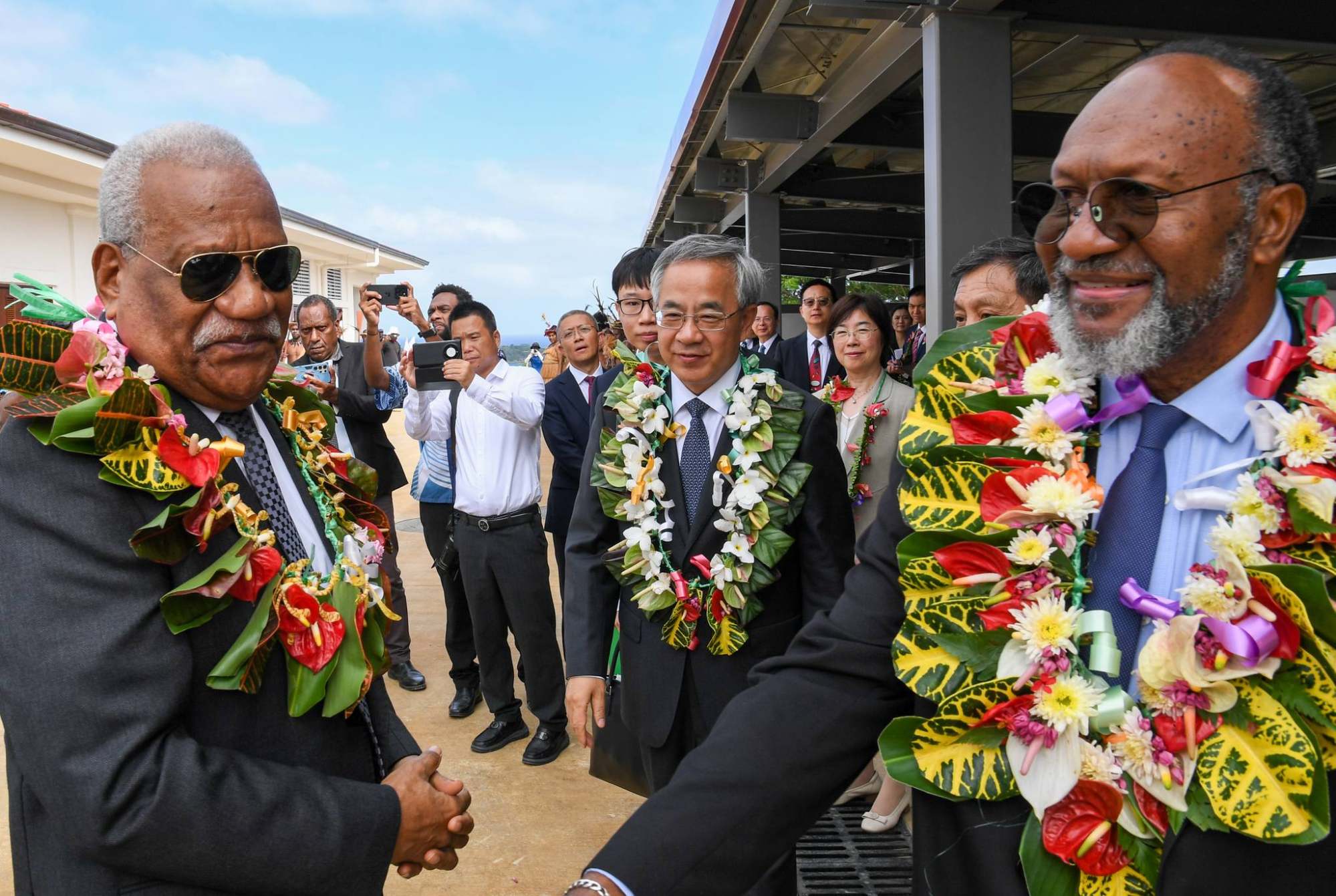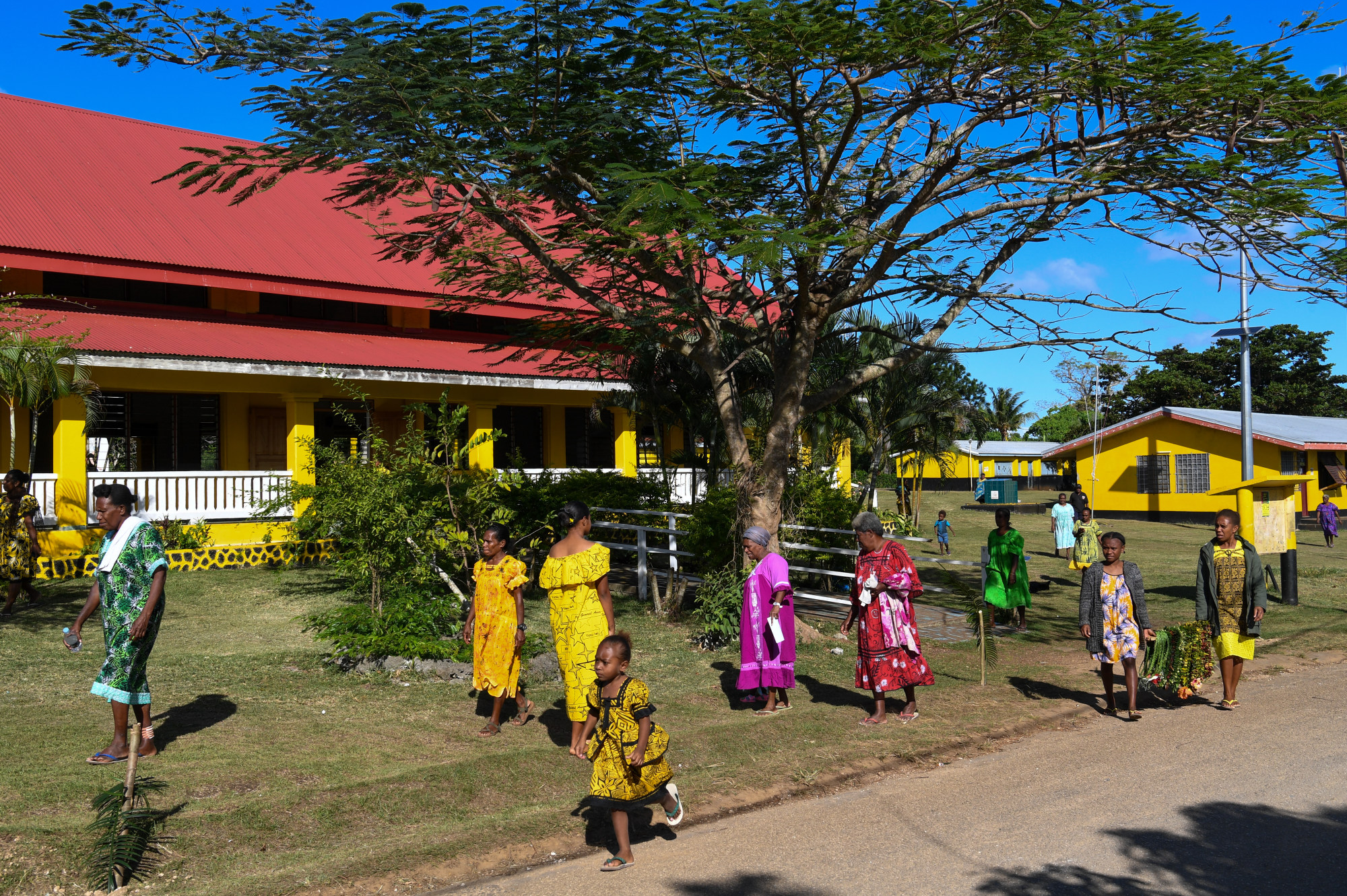
China, Australia donate buildings, airstrips in Pacific influence race
- China donated a presidential building complex in Vanuatu, while Australia and New Zealand inaugurated an airstrip in neighbouring Solomon Islands
China has donated a presidential building complex in Vanuatu while Australia and New Zealand inaugurated an airfield worth A$55 million (US$36.55 million) in neighbouring Solomon Islands, amid competition for influence in the Pacific Islands region.
New Zealand Foreign Minister Winston Peters was in the Solomon Islands on Tuesday to hand over the airfield in Western Province, funded by New Zealand and Australia.
Solomon Islands Prime Minister Jeremiah Manele, also at the ceremony, is expected to travel soon to China, after visiting Australia last week on his first overseas visit in the role.
Manele told media after returning to the nation on Saturday that the Solomon Islands had asked Australia to fund the recruitment of local police over the next decade, so the nation could “look after ourselves” for domestic security.
The Solomon Islands has security ties with China and Australia, although the new government elected in April is reviewing its security arrangements, Manele said.
Hu Chunhua, vice-chairman of the National Committee of the Chinese People’s Political Consultative Conference, took part in a ceremony in Vanuatu on Monday to hand over a presidential office, and finance and foreign ministry buildings built by China in Vanuatu’s capital Port Vila on Monday.
A boat donated by Australia to Vanuatu’s police force, to boost maritime surveillance, arrived in Port Vila this week, Australia’s High Commission said in a statement.

China is the largest external creditor to Vanuatu after a decade of infrastructure building, while Australia is its biggest aid donor.
Hu also visited the biggest Pacific Island nation, Papua New Guinea, which has defence ties with the United States, last week.
“China is committed to developing friendly cooperation with Pacific Island countries, including Vanuatu and the Solomon Islands,” China’s foreign ministry spokeswoman Mao Ning said at a regular press briefing in Beijing on Tuesday.
The project also included the construction of a new finance ministry and renovations to Vanuatu’s foreign affairs department, China’s embassy said in a statement released on Tuesday.
China’s embassy said the project had gifted Vanuatu “another landmark building”, while symbolising a new “milestone” in their increasingly warm relationship.
A Chinese delegation handed Salwai an oversized novelty golden key – also emblazoned with “China Aid” – kicking off a festive opening ceremony replete with Chinese dragon dancers and the brewing of the ceremonial kava drink.
Local media reported that hundreds of public servants would work, rent free, inside the new buildings.

Vanuatu is heavily indebted to China: about 40 per cent of its external debt is owed to China’s Exim bank, according to the Lowy Institute.
China has funded a swathe of major infrastructure upgrades across the archipelago, part of an intensifying scramble for influence pitting Beijing against Western rivals.
Beijing’s ambassador to Vanuatu, Li Minggang, has said that China is ready and willing to “step up pragmatic cooperation in this field”.

.png?itok=arIb17P0)
